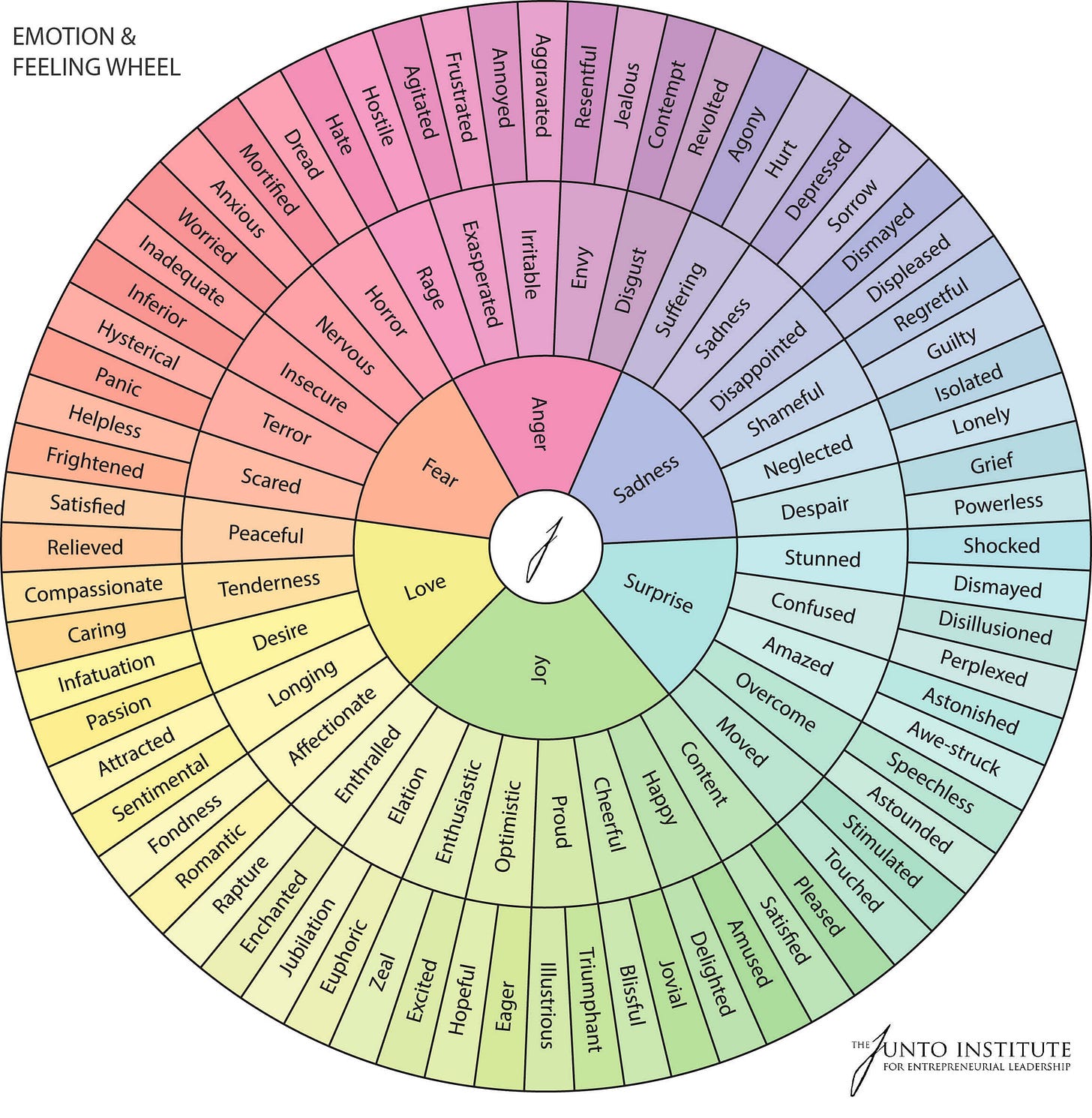There is a pestilence floating around our common discourse that quietly disrupts our ability to grow and develop as communities. It is as virulent as an airborne disease, and it is currently poisoning the minds of every living generation. Dangerously, the idea markets itself as progressive and empowering, but it is regressive and divisive.
It is the belief that people have more differences than we do similarities, often expressed in the phrase of “you can never understand what it’s like to [fill in the blank].” The best example of how deeply this idea has taken root is the famous monologue of the praised 2023 movie “Barbie.” For those that chose to watch a movie about the man that directed one of the most history altering projects of human history, the Oppenheimer side, rather than the movie about a human doll of the Barbenheimer phenomenon this summer, you can find the speech here. (Although, porque no los dos?)
Starting with the phrase that drew much applause (and tears) in theaters, “It is literally impossible to be a woman,” actress America Ferrera starts her monologue by essentially saying “only women can truly understand what it is like to be a woman.” She goes on to describe the challenge of being a woman in presumably America—as I am not particularly sure how worried many women in Yemen or Guatemala are about asking for money without seeming “crass." We will discuss distortions of the idea of privilege in the near future, but the picture below will suffice for now.
She continues to say, “You have to lead without squashing other people ideas.” “Always be grateful, but never forget that the system is rigged.” “You have to never be rude, never show off, never be selfish, never fall down, never fail, never show fear, never get out of line."
I agree with most everything she says. It is hard to lead without feeling bossy. It is anxiety-provoking to try to always be extraordinary. It is extremely tough to feel like I am doing everything wrong and that it was all my fault. It is tough to be so full of love for my dogs, but also know that most people don’t want to hear me talk about them all the time. But unfortunately, she wasn’t talking about me. She was talking only about women’s struggles because in today’s conversations, male and female challenges are unique. Some believe that men simply don’t struggle at all, but the evidence refutes this.
This attempt to create division rather than unity in our struggles as people exacerbates our problems. The starkest example of this came in the summer of 2020 after the death of George Floyd. For those that could stomach the video, few things are more heart wrenching than watching a man slowly die under the knee of uniformed police officer. I thought the ensuing movement would be galvanizing as Americans united to face the real problems associated with policing-related fatalities. However, rather than recognizing that approximately 500 white people are shot every year by cops, the movement became solely focused on black people shot by police officers. White people were told mostly by other white people that they couldn’t understand what it was like to be afraid of cops or what it was like to feel persecuted by cops, but that belied the facts and the numbers. The movement became divisive vice inclusive and focused on our differences rather than our similarities. Some focused on the higher percentage per capita of black people shot, and others focused on the total number. In 2020, there were 1020 police shooting fatalities. Rather than uniting around the pain of the 1020 dead Americans and their families, we created divisions and tiers. The consequences were real. In 2023, there were over 1163 fatal police shootings, a 14% increase. No matter your beliefs on policing problems or race in America, this is a tragedy. With more eyes than ever on the situation, things objectively deteriorated.
The phrase “you can never understand” is dangerous because it feels empowering when it is in fact erosive. It is momentarily cathartic to feel unique in our suffering and pain. But You-can-never-understand-ism does few things more effectively than shut down communications and bar us from community. When we are challenged by the world and life, we need few things more than a community. By telling others that they can never understand, it instructs them to not even try to understand. This is the exact opposite of what we should be doing. Similar to the cycle of depression in which our self-destructive behaviors can feed our depression, telling people they can’t understand makes them not want to understand, increasing the divides between us.
It is time to take responsibility for our current state of social tension and find ways to improve our communication. Our responsibility as citizens is to actively fight against our instincts to subscribe to you-can-never-understand-ism. As a concrete way to do this, I encourage people to ICE: identify, clarify, and empathize.
Identify. You-can-never-understand-ism often starts with a feeling of frustration that your partner, friend, co-worker, mortal enemy cannot grasp the feelings you are experiencing. This is where the divide first forms. It is critical at this juncture that both the speaker and the listener first recognize this and identify the existence of a break-down in the communication. Identification is a simple step, but a critical one.
Clarify. All members of the conversation should actively begin to clarify the emotions of the conversation. More clear terms make it easier to connect and find common ground. For those working on teaching basic emotional intelligence to their children, this looks a lot like the game “Name That Emotion.”
An effective clarification sounds like a well-intentioned back-and-forth, and it requires two engaged and willing to participate parties An example might be:
An example might go like this:
Speaker: “You can never understand because you don’t know what it’s like to be Latino in America!”
Listener: “How do you mean?”
Speaker: “Well, you can’t understand what it’s like to have brown skin.”
Listener: “I don’t understand what it’s like to physically have brown skin or something that you think is associated with having brown skin?”
Speaker: “You dont understand what it’s like for people to think you are lesser because of your skin color.”
Listener: “I see. You think that I can’t understand how you are feeling because I don’t know what it is like for people to think I am lesser because of an immutable and unchangeable physical characteristic?”
Speaker: “Exactly! It is so frustrating! And I feel so helpless!”
Listener: “Ah, so you feel helpless and frustrated because people judge you for something you don’t think should matter in society?”
Speaker: “Yes!
In the above example, the listener has helped the speaker identify their core emotions, If they went to middle school, the listener can identify with both of them.
Empathize: Empathy grows out of the ability to clarify our emotions. When we take efforts to clarify our emotions to others, and when we are willing to help others clarify their emotions, two things happen.
One, engaging our logical brains brings down the temperature of the moment. Rather than our allowing our reptilian brains to takeover, we strive to put a name to emotions we are feeling as if it were a puzzle or a game. Requiring both parties to be engaged holds everyone accountable in the conversation.
Two, when we clarify our feelings, it becomes clear the listener has probably felt all the same emotions you are feeling at some point in their life. Anyone who was ever a teenager has felt sorrow, lonely, powerless, inadequate, anxious, jealous, or agitated.
By clarifying our feelings, we open the door for someone to empathize with us, planting the seeds of connection. Rather than cutting people out of our lives and telling them they can’t understand, let’s work together to build bridges in our communities. Growth is a two-way street, but I often say that communication is the burden of the speaker. If people are not understanding, the worst thing we can do is tell them they will never understand. That only ensures that they will never understand.
By implementing the ICE method, it is possible to reduce the time spent on the top half of the emotion circle above and increase the time spent on the bottom half—being delighted, compassionate, and triumphant.
One Last Thing
Hurricane Love is a Swedish band that I’m sure few folks have heard of (we can all empathize with the “I was so hipster, I’ve been listening to this band for years” phase right?), but they released an incredible album a decade ago about the ups and downs of a relationship. As we strive to implement ICE in our interpersonal communications, remember that we are only human and bound to make mistakes. Yet another thing that we can all connect on and empathize with







Great job trying to delete a double standard in society thru such a relatable topic